London house prices fall – but elsewhere they're rising
Properties in the capital are bucking the house-price trend, but likely to become 'more unaffordable' in the medium term
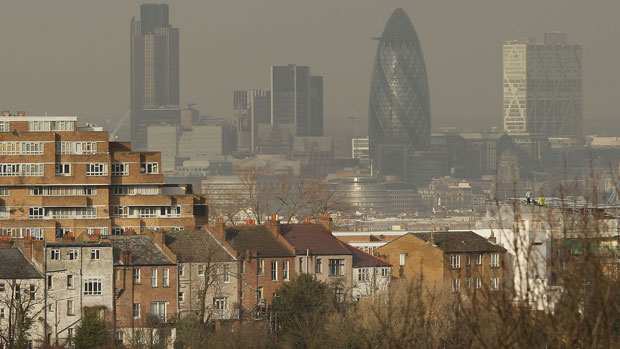
A free daily email with the biggest news stories of the day – and the best features from TheWeek.com
You are now subscribed
Your newsletter sign-up was successful
London house prices have dipped, according to leading surveyors, defying the trend of rising prices across the rest of the country.
The capital recorded its sixth consecutive monthly price fall, going against the pattern witnessed elsewhere. House prices outside London rose by more than expected, particularly in Scotland and Northern Ireland.
The Royal Institution of Chartered Surveyors found more of its members reported that property prices in the capital had fallen in the three months to the end of February than those who reported rises.
The Week
Escape your echo chamber. Get the facts behind the news, plus analysis from multiple perspectives.

Sign up for The Week's Free Newsletters
From our morning news briefing to a weekly Good News Newsletter, get the best of The Week delivered directly to your inbox.
From our morning news briefing to a weekly Good News Newsletter, get the best of The Week delivered directly to your inbox.
However, "there is a strong view in the survey that property will become even more unaffordable over the medium term," the institution's chief economist Simon Rubinsohn, told the Daily Mail. He said that respondents suggested that prices in London would increase by a further 30 per cent over the next five years due to a shortage of homes.
Political uncertainty ahead of May's general election is also likely to cause homeowners to put off the sale of their homes, which will further decrease the number of properties available on the market.
"The anecdotal evidence that political uncertainty is causing at least a short-term slowdown in some markets, including the capital, highlights the extent of the challenge policymakers will face in addressing the housing crisis in the aftermath of the coming general election," said Rubinsohn.
The average UK home is now worth £192,372, an increase of almost £12,000 in just a year, according to the recent figures released by Halifax.
A free daily email with the biggest news stories of the day – and the best features from TheWeek.com
London house prices rise by a quarter in the last year
02 July
London house prices have risen by a quarter in the last year, with the average house price topping £400,000 for the first time, according to new data from Nationwide.
The capital has not seen such a rate of growth since the summer of 1987, with the cost of houses in London now 30 per cent higher than their pre-recession peak in 2007.
House prices in the city rose by 25.8 per cent between the second quarter of 2013 and the same period this year, pushing the average to £400,404.
June was the 14th month of successive increases, according to Nationwide's House Price Index.
The figures are likely to fuel fears of a price bubble in the capital, says The Guardian, with some areas such as Lambeth and Camden seeing a rise of more than 36 per cent in the last year. Even house prices in Barking and Dagenham, the area with the lowest growth rate in the capital, rose by 15 per cent.
However, the gap between London and the rest of the country has continued to widen, with prices in the capital more than double the UK average.
"While all regions recorded annual price gains for the fourth quarter in a row, there is still significant variation across the UK, with the south of England continuing to record the strongest rates of growth," said Robert Gardner, Nationwide's chief economist.
The mortgage market has come under heavy scrutiny from politicians and economists, with the Bank of England last week placing a new cap on loan-to-income mortgage lending. Gardner believes there is "still some headway" before the cap "bites", but added that the annual pace of growth in London is likely to slow given the high base for comparison from the third quarter of 2013, as well as anecdotal evidence from surveyors and estate agents.
London housing market is 'starting to run out of steam'
16 June
The London housing market is "starting to run out of steam", according to the UK's biggest property website Rightmove.
Asking prices for London properties posted on the website fell for the first time this year, by 0.5 per cent in early June compared to the previous month.
Rightmove said the drop is partly due to new sellers rushing to cash in on rising prices. The fall was also down to buyer reluctance, said the website, with prices in some areas of the UK, especially London, hitting an "affordability cap".
New seller asking prices in England and Wales are at a "virtual standstill", it said, rising by just 0.1 per cent on the previous month.
The ebb in demand and the flow of extra property choice coincides with the "somewhat chaotic" implementation of the new Mortgage Market Review (MMR) and its tighter lending criteria, said Rightmove.
Miles Shipside, Rightmove director and housing market analyst, said the London market "is starting to run out of steam", describing it as an "example to the rest of the country of what happens when affordability and common sense get stretched too far".
Shipside said the news will "come as a relief" to Mark Carney, governor of the Bank of England, who has cited an over-heating housing market as a serious threat to economic recovery.
However, The Guardian notes that prices in London are up 14.5 per cent from a year ago, despite this month's slide in asking prices. According to the Nationwide building society, house prices have reached their pre-crisis peak, with London driving the boom with annual price rises of 18 per cent.
After five years of interest rates remaining at a historic low of 0.5 per cent, economists told The Sunday Times that households and companies should be braced for a rise to 1.5 per cent by the end of next year.
Vince Cable: 'Bank of England must curb housing boom'
12 June
Cable told the BBC's Today programme that he was "appalled" to discover that banks were lending five times people's salaries and wants mortgages capped at around three to three-and-a-half times people's income.He warned that the Bank of England must ensure that "this boom in house prices, particularly in the south of England, doesn't destabilise the whole of the economy" and said that banks "must not throw petrol on the fire".Chancellor George Osborne is due to address the matter in his annual Mansion House speech to the City of London today. Bank governor Mark Carney, who will also make a speech, is expected to signal measures to reduce risks to the economy from rapidly rising house prices.Cable's comments echo those from the International Monetary Fund, which yesterday warned that the world must act immediately to avoid the risk of another devastating housing crash. Its data showed that house prices are well above their historical average in many countries.However, the latest survey from the Royal Institution of Chartered Surveyors (Rics) suggests that buyer interest is cooling, even in London.Tighter lending conditions, concerns about interest rate rises and a lack of supply of properties seems to be "stemming the tide" of prospective buyers, said Rics.Nationally, the institution believes house price inflation will rise for the next six months before slowing down towards the end of the year. But it says the slowdown could come even sooner in London, where new buyer inquiries has fallen for the first time in 14 months.
In March, surveyors predicted house price rises of nine per cent a year over the next five years. But this has now been reduced to five per cent.
-
 The ‘ravenous’ demand for Cornish minerals
The ‘ravenous’ demand for Cornish mineralsUnder the Radar Growing need for critical minerals to power tech has intensified ‘appetite’ for lithium, which could be a ‘huge boon’ for local economy
-
 Why are election experts taking Trump’s midterm threats seriously?
Why are election experts taking Trump’s midterm threats seriously?IN THE SPOTLIGHT As the president muses about polling place deployments and a centralized electoral system aimed at one-party control, lawmakers are taking this administration at its word
-
 ‘Restaurateurs have become millionaires’
‘Restaurateurs have become millionaires’Instant Opinion Opinion, comment and editorials of the day
-
 The end for central bank independence?
The end for central bank independence?The Explainer Trump’s war on the US Federal Reserve comes at a moment of global weakening in central bank authority
-
 Should Labour break manifesto pledge and raise taxes?
Should Labour break manifesto pledge and raise taxes?Today's Big Question There are ‘powerful’ fiscal arguments for an income tax rise but it could mean ‘game over’ for the government
-
 What are stablecoins, and why is the government so interested in them?
What are stablecoins, and why is the government so interested in them?The Explainer With the government backing calls for the regulation of certain cryptocurrencies, are stablecoins the future?
-
 Will the UK economy bounce back in 2024?
Will the UK economy bounce back in 2024?Today's Big Question Fears of recession follow warning that the West is 'sleepwalking into economic catastrophe'
-
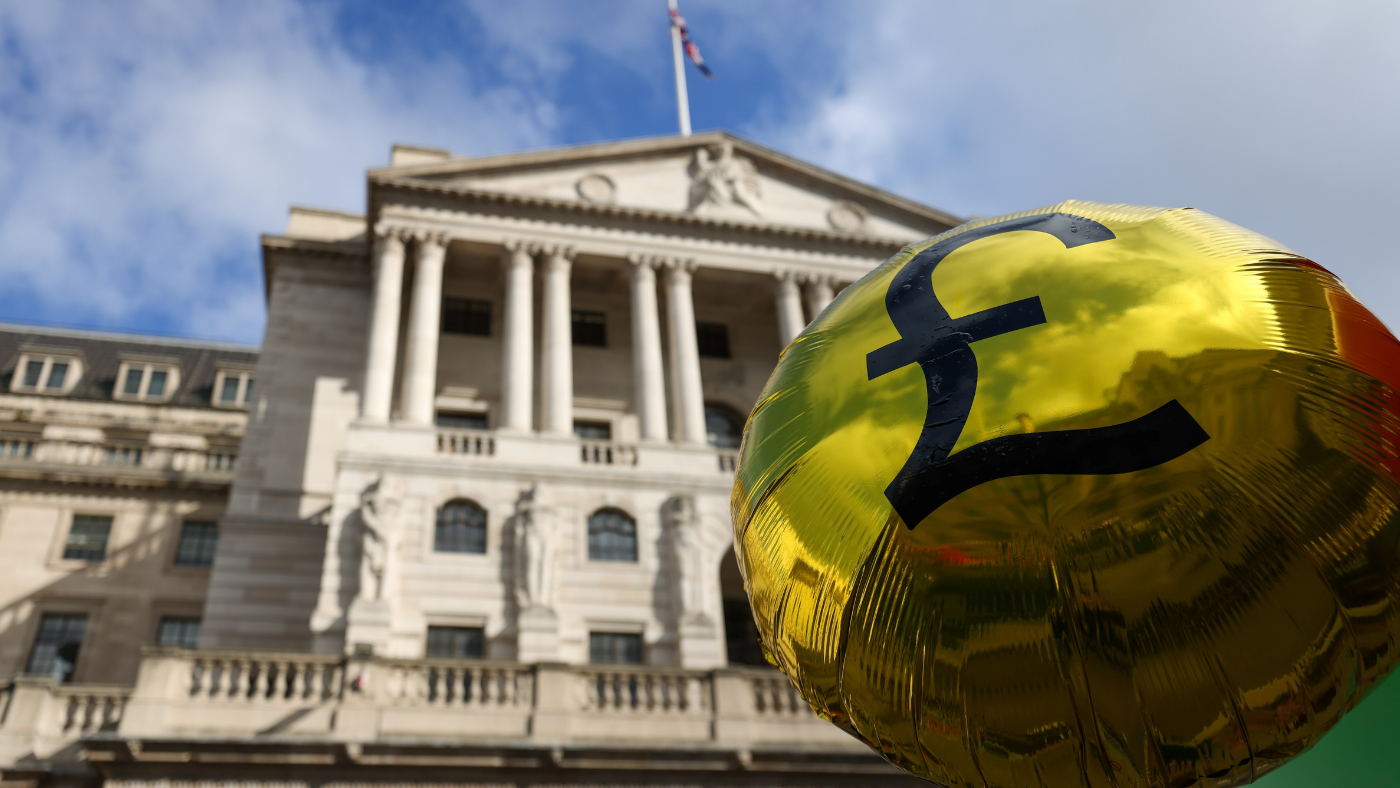 Interest rates rise to 5.25% for first time in 15 years
Interest rates rise to 5.25% for first time in 15 yearsSpeed Read Inflation is slowing but at 7.9% it remains well above the Bank of England’s 2% target
-
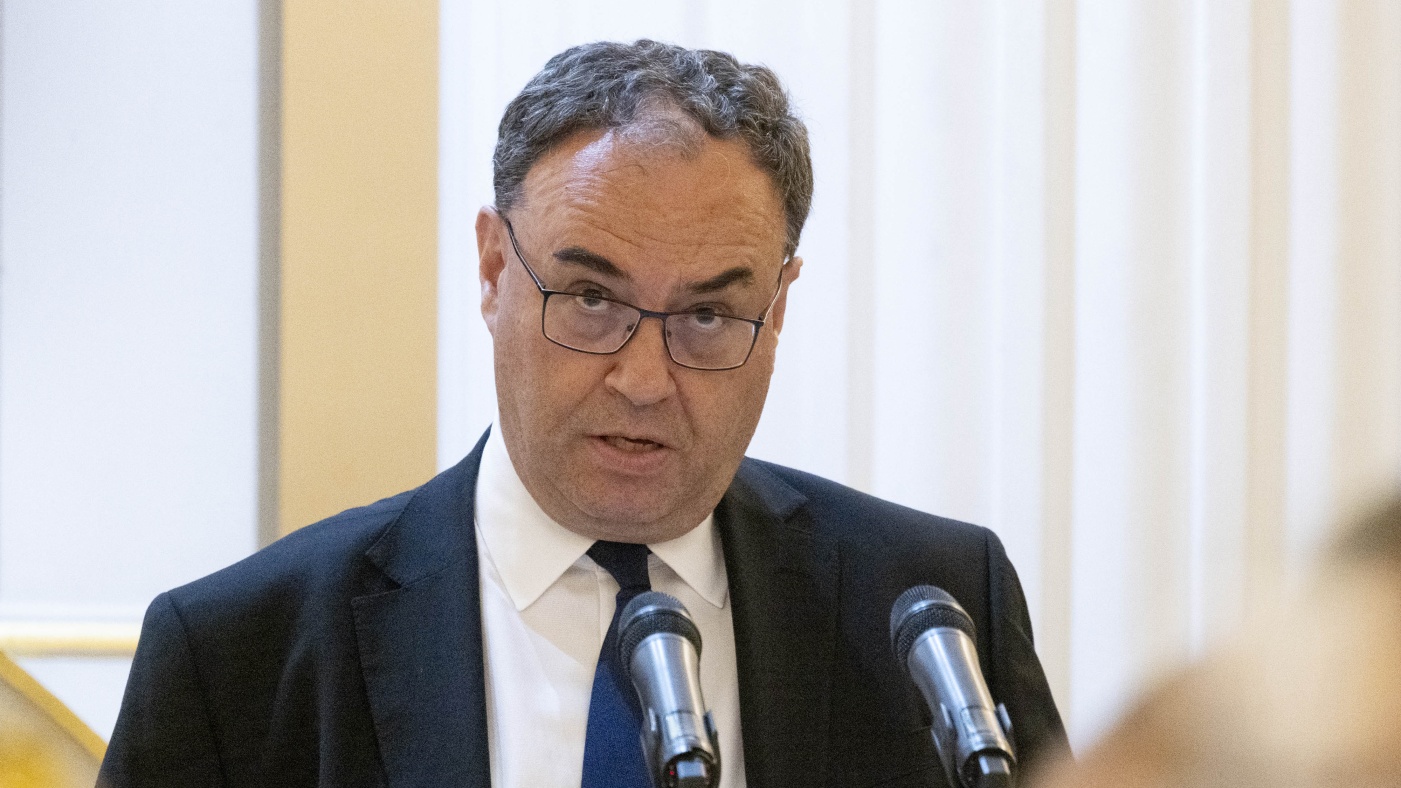 Five options to get the UK back to 2% inflation
Five options to get the UK back to 2% inflationfeature Some economists believe alternatives to raising interest rates are in the country’s best interests
-
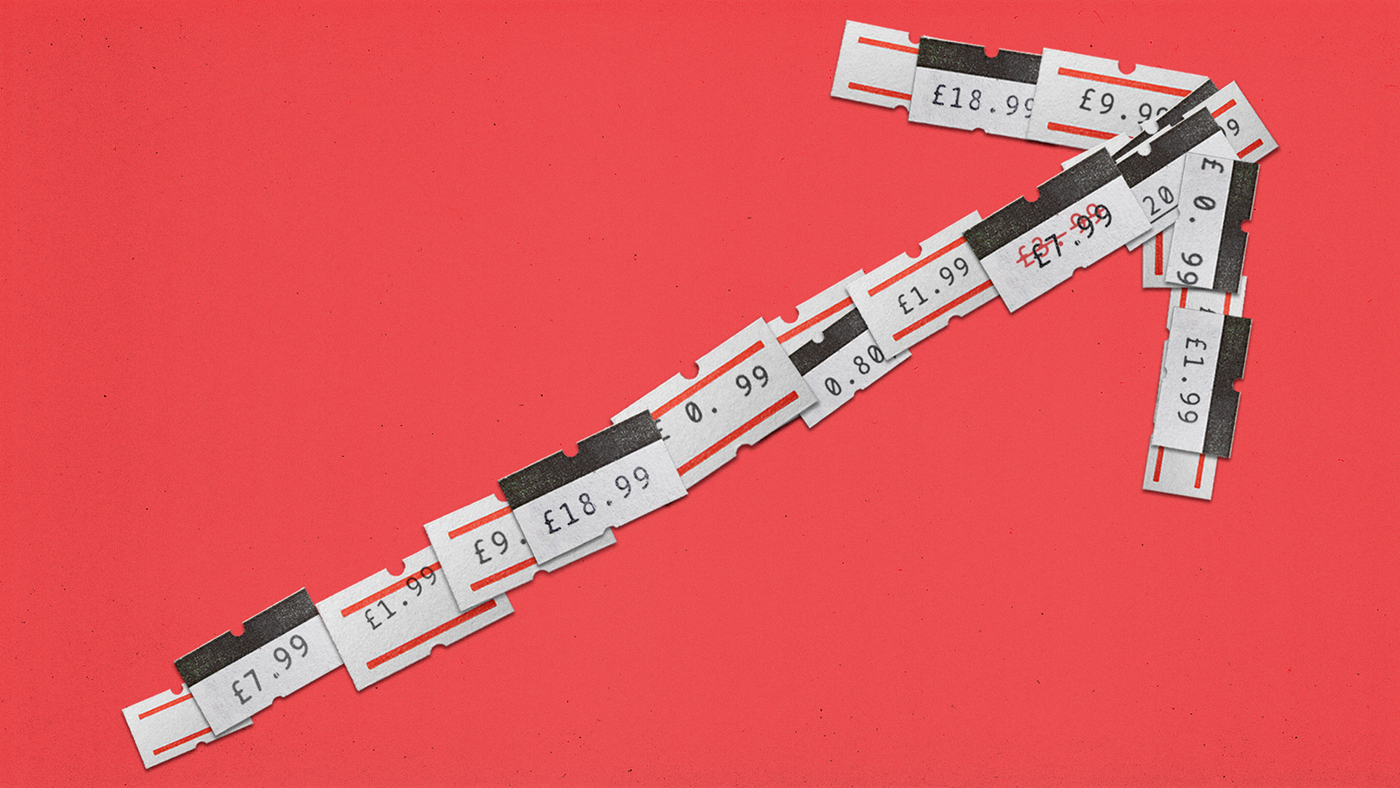 Why aren’t soaring interest rates bringing down inflation?
Why aren’t soaring interest rates bringing down inflation?Today's Big Question PM pins blame for stubborn inflation on fixed-rate mortgages, but economists say the picture is more nuanced
-
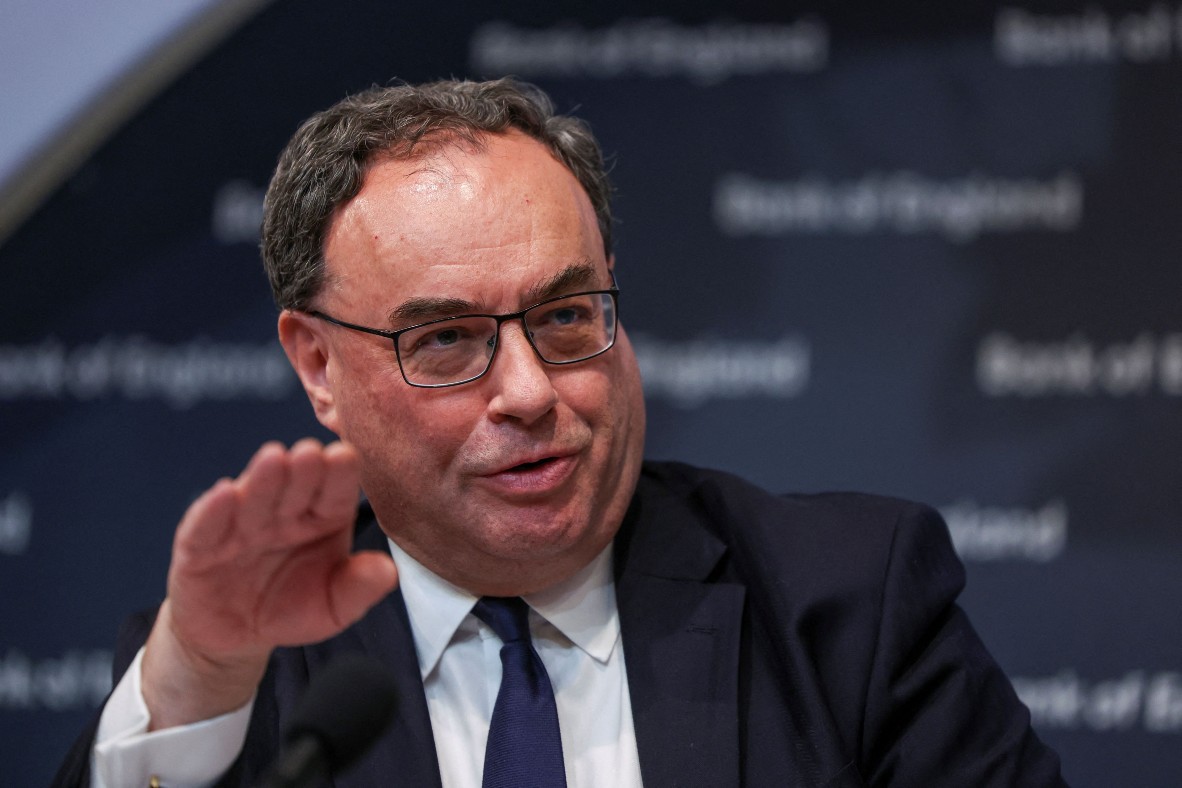 Sticky inflation and sluggish growth: why does UK economy continue to struggle?
Sticky inflation and sluggish growth: why does UK economy continue to struggle?Today's Big Question Food prices, Brexit and the Bank of England have been blamed for poor economic performance